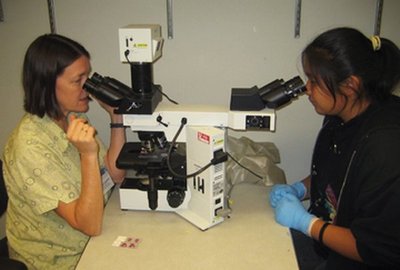November 12, 2009
Recipient of stimulus funding aims to increase Native American enrollment in higher education
By Mary Guiden and Catherine O’Donnell
News & Information
The number of economic stimulus awards at the UW continues to rise.
As of Nov. 1, the University had received 352 awards totaling $147.5 million. Most are from the National Institutes of Health and the National Science Foundation, but other sources include Pacific Northwest National Laboratory and the U.S. Geological Survey.
The UW ranks second in the nation after the University of Michigan in number of NIH awards. The awards began after President Barack Obama signed the American Recovery and Reinvestment Act on Feb. 17.
UW awardees include Polly Olsen, a director at the Indigenous Wellness Research Institute in the School of Social Work
She doesn’t like to brag, but as a recent recipient of nearly $500,000, she is quite pleased. The money will support the Native Youth Enrichment Program, which aims to increase Native American enrollment in higher education by helping students transition from middle school to high school and beyond, Olsen said.
Trips to the UW campus will help the youngsters see what college is like, and the program will build on that interest. While in Seattle, students might tour a few labs and learn about careers in Health Sciences. UW Medicine Pathology regularly hosts Olsen’s groups with support from its own Native American education project.
The stimulus award also supports a four-week summer program for teachers from four school districts: Seattle, Kent and Highline and Suquamish Tribal Schools. The program focuses on science, technology, engineering and mathematics, or STEM, as it’s known. Up to 120 students could benefit from the program, which includes culturally-appropriate references in the curriculum. Science and health materials, for example, would include information on diabetes because of its increasing prevalence among Native American communities.
Olsen has been working with Native American youth for a decade. But it’s also been a part of her life. “I grew up on ‘the res’,” Olsen said, referring to the Yakama tribe she hails from. “Working with Native American youth is important because it’s an under-represented population. Serving the population is enriching and rewarding. It helps me give back to the community as my mentors did with me. With the right tools and knowledge, these students can be what they dream to be.”

